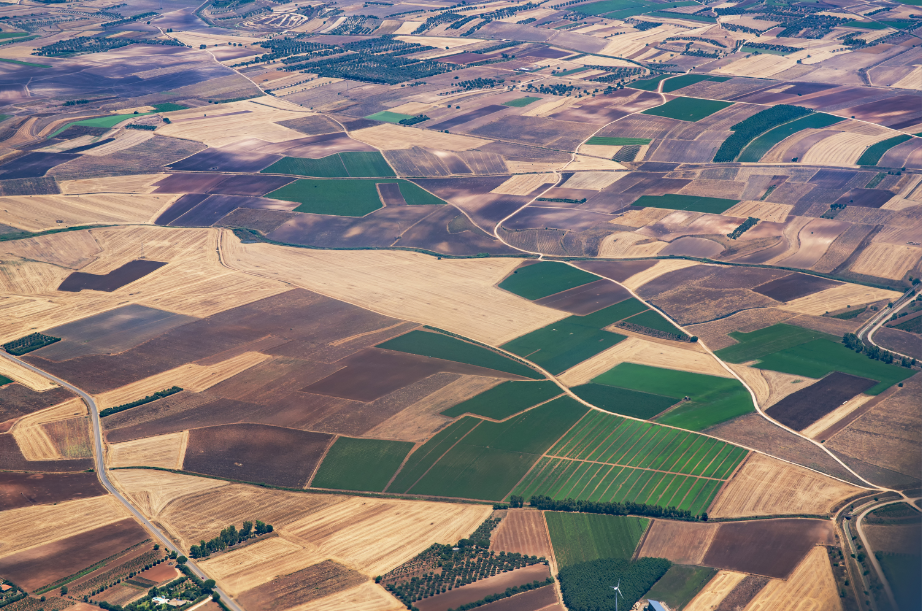The Problem
As of late 2019, foreign investors have held an interest in almost 35.2 million acres of U.S. farmland. That’s an area larger than the state of New York. In the past 17 years alone, foreign farmland holdings have doubled in the U.S. and the trend is showing no signs of slowing.
The issues that occur in the wake of foreign land ownership are aplenty: to start, companies based in countries like China and Brazil are solidifying unprecedented levels of control over the United States’ food supply chain, posing a threat to both national security and food security. To be clear, the problem lies with foreign owned corporations; individual farmers of non-U.S. descent who live and work the land responsibly are not the actors driving this issue.
The holding of land by any corporation, but especially a foreign corporation, means that natural resources and wealth are being extracted and transferred to the pockets of someone hundreds, if not thousands of miles away. This separates the land owners from the consequences of polluting or degrading their land, leaving surrounding communities with little to no access to the resources that surround them and limited access to the wealth that corporations enjoy from selling what they extract.
As more countries around the world take action to restrict foreign farmland ownership, those looking to own land internationally turn their attention to the loosely regulated U.S. farmland market. Investors flock, bloating farmland prices, and shutting U.S. farmers who want to live and work on the land out of the market. And as current farmland owners age, there is dwindling opportunity for young or economically disadvantaged farmers to purchase land in this inflated market.
The Struggle
Creating safeguards around how much farmland in the U.S. can be owned by foreign corporations is not a new concept. In 1978, the federal government passed the Foreign Investment Disclosure Act, tasking the USDA with collecting data on all agricultural land purchases by foreign investors. But less than two decades later, the enforcement of these rules remains on shaky ground. The USDA has assessed few fines, and an analysis conducted by the Midwest Center for Investigative Reporting found many of the USDA’s records contain errors or missing information. Understaffing at the USDA, complicated ownership arrangements, and corporation’s failure to report their own mistakes are all contributing factors to the alarming lack of data available on foreign land ownership.
There have been multiple attempts to remedy this issue. More recently on the federal level, Republican Iowa Senator, Chuck Grassley introduced the Food Security is National Security Act of 2017 to create more accountability for the federal government’s efforts to track foreign land ownership. The bill died before it received a congressional vote.
States also have the power to regulate foreign ownership of their farmland, and 22 states have their own rules in this arena. But again, enforcement can be a hit or miss. National attention has been drawn back to the threats posed by foreign corporate land ownership recently, as Missouri state senator, Doug Beck, has renewed a state-level push to ban foreign entities and domestic corporations from buying up Missouri’s farmland.
The ban Senator Beck is fighting for was passed in 1978, but amendments tacked on after the fact weakend what was supposed to be a clear-cut rule. Farm Action Fund assisted in the development of the legislation Senator Beck is currently pushing for. If implemented, this legislation would squash the amendments that created loopholes in the ban.
One amendment allows foreign interests to hold up to 1% of Missouri’s farmland if they fall under certain exceptions, including hog farming. Another amendment was added saying the reporting of corporate land ownership to Missouri’s Department of Agriculture was no longer required. Only weeks after this relaxation of reporting requirements, Chinese owned pork-producing giant, Smithfield, purchased a chunk of Missouri farmland. According to an investigation by Kevin McDermott with St. Louis Post Dispatch, all legislators who pushed for this lax reporting amendment received significant campaign contributions from Smithfield.
On the state level, Missouri isn’t the only one sounding the alarm. Iowa, Minnesota, Mississippi, North Dakota, Oklahoma and Hawaii have all banned foreign ownership of land in their state. Kansas, Missouri, Nebraska, Oklahoma, and South Dakota ban corporations, domestic or foreign, from holding a title for farmland, but all of these states have exceptions written into their laws. So even though there has been political action to address this global, bipartisan issue, powerful corporations have successfully pushed loopholes that allow their ownership of farmland into the very laws trying to prevent it.
Policy Solutions
Strong safeguards around foreign corporate farmland ownership is a start, but we need to think one step ahead. U.S. based corporations are buying up farmland too, and they’re standing ready to snap up the land that their foreign competitors can’t. Corporate ownership of U.S. farmland, no matter where the corporation is based, leads to many of the same issues: inflated prices, shutting young and beginning farmers out of the market, the extraction of natural resources and wealth from rural communities, and the exploitation of farmers and ranchers.
The policy solutions to address this myriad of issues can be thought of in three buckets:
- We need to know what foreign entities are buying land, and how much. The Agriculture Foreign Investment Disclosure Act requires foreign interests to register their farmland purchases with USDA, but the USDA has admitted they do not have the staff and resources needed to properly monitor the program. In late 2020, Representative Pocan (D-WI 2nd) introduced H.R. 8522, the latest policy aimed at strengthening the USDA’s monitoring capabilities. If passed, the bill would help us fully understand just how much agricultural land has been purchased by foreign interests.
- In order to protect both our national security and food security, we need to implement a strong, well-defined ban on foreign corporate ownership of U.S. farmland. The ban should address work-arounds too, like folding corporate structures and domestic land holding companies with big percentages of their equity held by foreign corporations.
- Corporate ownership of farmland — domestic or foreign — should be limited. U.S. farmland is becoming a popular investment strategy for corporations and wealthy investors. As concentration solidifies in other parts of the food system, land ownership is a final frontier. A just food system that works for everyone cannot be achieved if a few hands control the majority of U.S. farmland.
So how do we implement strong rules that will protect U.S. farmland? At the most basic level, many states have separate laws banning foreign ownership, and corporate ownership. So in many states, there is a need for two bills. One that would ban corporations, domestic or foreign, from owning farmland, and one that would reign in foreign corporate ownership of farmland specifically. Think of it as casting two nets at the same time; a general ban on corporate ownership of farmland could catch foreign corporations who may have slipped through the cracks of a more specific foreign ownership rule, or visa versa. Both bills would align in their objective: establishing competitive, fair markets where Americans have the right to share in the prosperity they helped build.
Each state has different laws, so one size won’t fit all. In addition to drafting legislation to strengthen Missouri’s ban in 2018, the Farm Action team has drafted legislation to fit in with Arkansas’ existing reporting laws, and stands at the ready to draft legislation for any state willing to tackle the issue. One thing is for sure, we need to take decisive action to reign in the massive consolidation of U.S. farmland and harness the resiliency that independent farmers and ranchers bring to our food system.
Written by Anna Straus; designed by Angela Huffman; edited by Dee Laninga, Angela Huffman, and Joe Maxwell; concept developed by Joe Maxwell, Angela Huffman, and Anna Straus.



